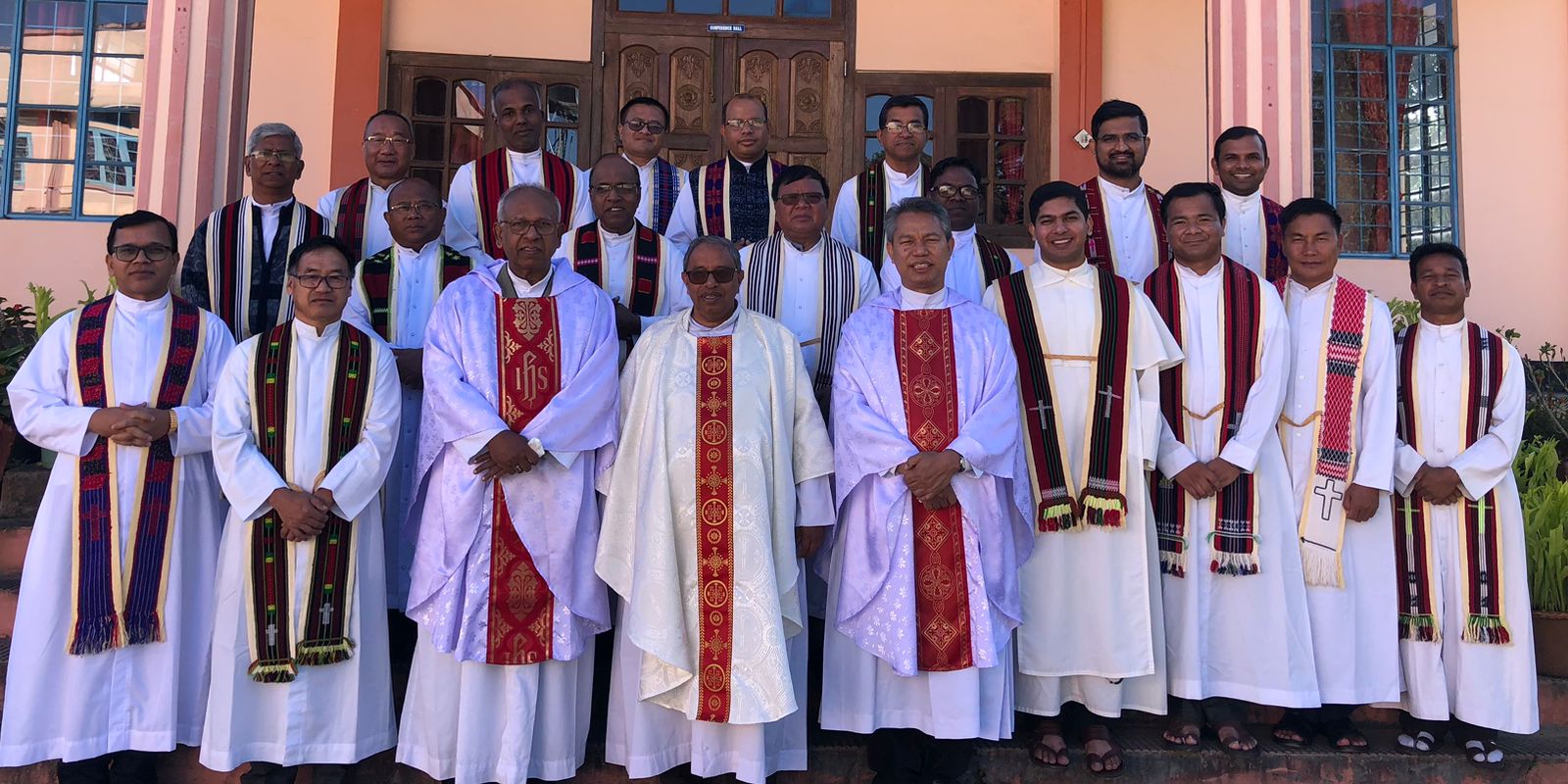Northeast India’s Catholic bishops have expressed deep concern over the inadequate academic backgrounds of many seminary candidates, warning that poor education systems are producing priests unprepared for their roles and responsibilities within the Church.
The prelates made the statement during the biennial meeting of the Northeast India Diocesan Formators, which began on Oct. 21 and runs until Oct. 23.
The gathering brought together representatives from 11 of the region’s 15 dioceses to address critical issues in priestly formation, particularly the academic challenges facing seminarians.
Emeritus Bishop John Thomas Kattrukudiyil raised alarms about the poor academic background of many individuals entering seminaries.
“Some deacons and priests even struggle to write a three-digit number,” he said. He recounted an instance where a student wrote “10022” instead of “122,” and another candidate miswrote “two thousand five hundred and twenty-five” as “200050025.”
He highlighted that many class ten graduates lacked basic knowledge of notable figures like Isaac Newton and Pythagoras.
Bishop John Thomas, who has dedicated most of his priestly life to formation, investigated the reasons behind this educational crisis.
He attributed it to the insufficient integration of the formation system with the challenges posed by non-functional school graduates. In response, he stressed the need for remedial education, proposing that a curriculum be developed along with necessary textbooks.
At the biennial meeting, the challenge of who will teach remedial education was hotly debated. While there was a unanimous agreement on its necessity, no clear solutions were proposed.
“We recognize the importance of remedial education, but we need to determine who and when,” Bishop Kattrukudiyil urged the gathering of 18 diocesan formators from 11 participating dioceses.
Bishop Thoppil, the current chairman of the Formation Commission, also brought attention to statistical concerns regarding priestly effectiveness.
He stated that only 10% of priests excel in their duties, while 20% perform adequately. Alarmingly, 50% are deemed irrelevant.
“Now more than ever, we need to reevaluate our formation process,” Bishop Thoppil asserted. He highlighted the necessity of continual formation, arguing that it extends beyond ordination. “Formation should not stop; it must be an ongoing journey.”
The socio-political climate was also discussed, with Bishop John Thomas recognizing the contributions of intelligent leaders throughout history. “In our own country, political parties have transformed due to the efforts of thoughtful leaders,” he remarked.
Amid discussions, issues such as managing finances within seminaries surfaced. Formators expressed concern about seminarians soliciting funds from generous benefactors, leading to a lavish lifestyle early in their formation.
“We need to ensure they learn the value of humility and hard work,” said one formator, who preferred to remain anonymous.
Vicar General of Kohima, Fr. Carolus Neisalhou Kuotsu, suggested that seminarians should engage with older community members during vacations to connect with their roots through folktales. “It is essential for them to understand their reality,” stated another formator from Tura.
The meeting concluded with calls for a revised evaluation format for candidates and a commitment to see that the new textbooks are integrated into their education before they reach the Spiritual Orientation Course.







